
Programs
PANSA advocates strongly for quality and proactive engagement and ensure all our sporting programs are safe and accessible for everybody in our communities. We have strong role models and mentors working in our programs to encourage and guide our participants, continuing the work started by African community leaders many years ago.
Young people with migrant backgrounds can face significant barriers to participation in community activities. These barriers include cost, lack of transport, negative perceptions of migrants and racism. All of this can lead to social isolation, marginalisation and unfortunately sometimes ultimately to negative or anti-social behaviour.
Our programs are around improving lives and providing opportunities while tackling barriers and health risks. We listen to our community and participants to bring the best possible programs to life.
If you are interested in learning more or registering in one of the sporting programs we provide, we hold occasional PANSA Sports Info Sessions. Contact us to register interest to attend.
PERTH AFRICAN NATIONS CUP (MAKE SMOKING HISTORY PAN CUP 2025)
Please refer to our facebook page for current news and information about the summer 2024-25 program, commencing Friday 17 January at Ashfield Reserve, Ashfield, in partnership with Ashfield Sports Club.
SPORT ADVANCING FEMALE MULTICULTURAL INCLUSION
From 2024 to 2027 thanks to the Play our Way Australian Government grant funding, PANSA will be working with the community to break down barriers for multicultural women in sport and social activity.
A new dedicated female-only physical activity program for multicultural women and across four Perth suburbs. Operating out of communities with high female multicultural populations, we will deliver weekly 2-hour sessions that fuse yoga, dance and ball sports with health and wellbeing advice.
By tailoring activities to cultural sensitivities and abilities, and having multicultural female peer leaders deliver the program, we aim to break down the barriers around awareness, accessibility and cost that have traditionally contributed to low participation rate of multicultural females in sports activities.
The program will recruit 160 female multicultural participants, with the overarching goal of increasing physical activity within the cohort.
More details to be announced as the program rolls out in early-2025. Contact us to register interest to get involved.
PANSA PEER LEADERS
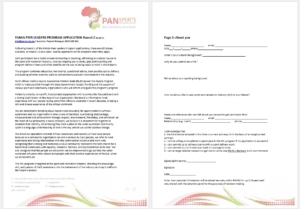
With the support of DLGSC Inclusive Funding our Empower the People Program, which includes the PANSA Peer Leaders Program comes under this broader community empowerment initiative.
What is a PPL? A PANSA Peer Leader is an outstanding member of the Multicultural Australian community with a view to achieving in the sport and recreation industry as a career or a secondary course in life. The PPL is learning while on the job and will access the inside of the sports industry while enjoying flexible hours and a regular complementary income source. PPLs will influence others around them to enjoy sport more, engage with clubs and mainstream environments and also become rolemodels and leaders in their community.
PANSA Peer Leaders is part of the Empower the People Program funded by Department of Local Government, Sport and Culture Industries WA.

CLUBS 4 ALL
Clubs 4 All Flyer
With the support of DLGSC Inclusive Funding our Empower the People Program is commencing this year. The Clubs 4 All Program comes under this broader community empowerment initiative.
We will work with sport peak bodies, schools, local governments and clubs to prepare clubs for great multicultural community inclusion, while promoting inclusive and welcoming sport environments to families from our community.
More to be announced on this program for 2025.
Clubs 4 All is part of the Empower the People Program funded by Department of Local Government, Sport and Culture Industries WA.

A SPORTING CHANCE
In 2024 thanks to finding support from the Community Gaming Trust, through Department of Local Government, Sport and Culture Industries, Perth African Nations Sports Association has commenced a new 12-month community sport group support program.
Returning to the roots of the PAN Cup movement, where community sport groups set aside rivalries and differences to embrace harmony and common ground through sport and unity, PANSA is delivering a new set of services to support groups to address current and emerging major issues in the community. With a carefully recruited team of staff we will be working closely with and attending the training and social programs of multicultural community sport groups.
The program’s key focuses are:
- Supporting people to recognise problem gambling and avert people becoming trapped in a gambling habit
- Empowering community sport groups with technical support of coaches, including advice, seeking equipment to run those activities and helping structure training and strategy
- Helping groups to acquire funding and resources including venues and funds to underpin their activities
- Helping groups recognise mental health issues in their peers and equipping them with knowledge and strategies to get help and improve and save lives
- Educating talented youths in the traps of aligning with bookies and match and spot fixing
The program has limited places so we encourage sport group leaders to make an appointment with our people ASAP.
WELL MEANING TO WELL EQUIPPED IN MULTICULTURAL SPORT
This Project was supported through Volunteering WA’s Volunteer Management Activity, funded by the Australian Government Department of Social Services.
This project focuses on multicultural sporting groups associated with PANSA.
It seeks to break down barriers limiting culturally and linguistically (CaLD) community participation as volunteers in sports – focusing on newly arrived migrants (within first 5 years of migration) and youth (aged 12-18). We will have candid conversations to understand obstacles, then develop solutions to overcome these obstacles.
We will support groups to expand their volunteer base and provide training, mentorship and resources for groups while we map and learn about the issues of each group. We will provide a link to government and Volunteering WA so the awareness of issues and solutions are shared.
Monthly incentive prizes are given out and groups involved are eligible for the draw, while PANSA offers other support and guidance to participating groups to help them become stronger and achieve more.
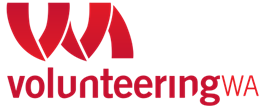
PANSA PROGRAM AMBASSADORS
We have strong role models and mentors working in our programs to encourage and guide our participants.
Part of our program is to provide opportunities for our participants to display their talents and be selected for development programs with leagues and clubs.
We have already seen a number of young African–Australian sportsmen and women break into elite levels of football, soccer and basketball. They are doing incredible work in breaking down barriers but there is more to be done.
PANSA’s four ambassadors have first-hand experience of the power of sport to bring people together. Each moved to Australia at a young age — it was through sport that they made friends and found their way in their new home.
Through taking opportunities and hard work, each has reached an elite level in his chosen sport. Now they are helping PANSA inspire and mentor the next generation of young African–Australian sportspeople.
Ajang Ajang: Perth Football Club (WAFL)
Thomas Deng: Socceroos debut, 2018
Sunday Dech: Adelaide 36ers
Friday Zico: International footballer
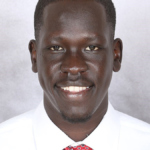
Sunday Dech
Sunday Dech was born in Ethiopia, a country known for producing a conveyor belt of world-class long distance runners.
He is the second oldest child of seven and was six years old when his parents moved to Australia, a place that very soon became home.
“It’s a blur now, but I remember bits of life in Africa but nothing substantial.” Sunday said. “At six years old I went through the transition period of learning English, I was lucky I went to some really good schools and was able pick it up really quickly. As you know kids pick things up at a rapid rate.”
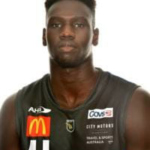
Ajang Ajang
“I am pretty sure if you asked any other Sudanese person, or anyone from a background like mine they will tell you that our parents, our mothers, are our superheroes.” Ajang Ajang said with the emotion in his voice as strong as ever. “I can’t put into words how hard it must have been for them to leave their life behind and try and find a new one for us kids. Theirs is a huge sacrifice. They had no childhood; they were in a war, or escaping a war since they were little kids. My goal in life is to try and make everything better for her, that is what I strive for.”
Ajang, or “AJ” as he is affectionately known was born in Kakuma Refugee camp in Kenya. His parents had been there for almost ten years, having arrived soon after the Sudanese civil war broke out.
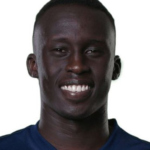
Thomas Deng
“I was six years old when we moved to Australia and we lived in Adelaide at first before moving to Melbourne at the end of 2011.” Australian international footballer Thomas Deng advised.
That move to Australia in 2003 was to be a huge move for the family. Deng’s parents had already fled the civil war in Sudan and settled in Nairobi where Thomas was born. Now they were leaving Africa to embark on a new life in a new country.
Thomas admitted that his memories of Kenya are limited, “I have more memories of Adelaide. It was the first place we went to and it was where my brother and me began playing soccer, and actually taking it seriously. We played at an Italian club and spent five or six years there. Adelaide Blue Eagles was our first club.”
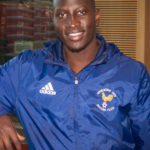
Friday Zico
In the Western world we are told that ‘home’ is where we belong. It is a place where you feel safe and confident.
South Sudan’s Friday Zico believes that once you find your place, only then will you feel like you belong.
Zico was born in South Sudan but has no recollection of his parents leaving their home and heading to Uganda.
“I was only a few months old when we left but my parents told us how thousands and thousands crossed over the border during the civil war in Sudan.”

